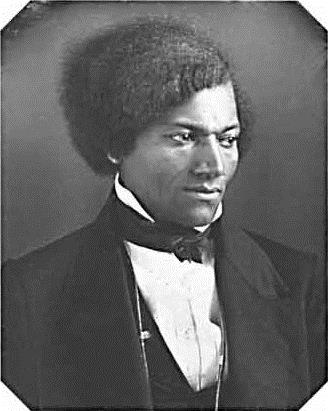On 28 August 1846, former slave and abolitionist, Frederick Douglass visited Exeter as part of a tour of the UK to generate support for the abolition of slavery in the United States. His address, ‘A Call for the British Nation to Testify Against Slavery’ was delivered at the Royal Subscription Rooms on Northernhay Place.
In his speech, he addressed the role that the British people could play in ending slavery in the America. On 5 September 1846 the Exeter Western Times reported:
“When he first thought of the interference of British Christians with slavery in America, he was somewhat fearful that that interference would do their cause an injury rather than a good. But his mind had undergone a change on this question, and he now believed that England possessed a power, superior to any power in the United States to operate against slavery—(cheers). Some sins, some evils in communities, could be best removed by the virtuous efforts of individuals composing these communities, but it was not so with slavery. That is such a monstrous system, such a giant crime, that it begets a character favorable to its own existence, vanquishing the moral perception, and blinding the moral vision of all who come in contact with it; and a nation has not the moral energy necessary to its removal.
He therefore felt himself abundantly justified in calling in the aid of all Christians—of all who were of good report in the British nation to testify against American slavery. He felt he was not only at liberty, but justified in directing the attention of all the world, and fixing on it the indignant eye of condemnation from every portion of the globe.”
In conclusion, he shared with the people of Exeter, his impressions of Britain:
“I tell you that it is a good thing to be in England, I like it. I feel that the representation made by the great Curran is not an extravagancy when he says that British law makes all men free as soon as their foot is set on British earth—no matter what language they speak, or on what dark spot they happened to be born. I feel it to be true. I will go to the land of my birth, I will proclaim it in the ears of the American people, whether I’m in a state of slavery or freedom, while I have a voice to speak it shall be raised in exposing the guilt of the slave-owners, and in contrasting the munificent freedom of monarchical England, with the slave-holding, man-stealing, woman-whipping, degradation of democratic republican America—(loud cheers). I have this glorious scene here, it is Daguerr[e]otyped in my heart, I shall go forth in the land of my birth, and tell them of the thousands and tens of thousands who have heard with indignation of their oppression—of the brave men and the feeling women who have listened with shame to the story of their woes. Oh! Mr. President, I wish all the slaves of America could peep in, could see us just as we are, and know as I know, the sympathies of this audience for their down-trodden spirits—(vehement cheering). Mr. Douglass having reiterated his thanks, sat down amidst the loudest plaudits.”

